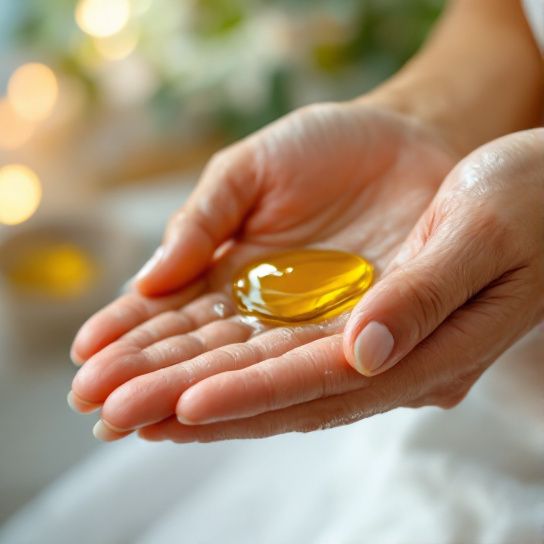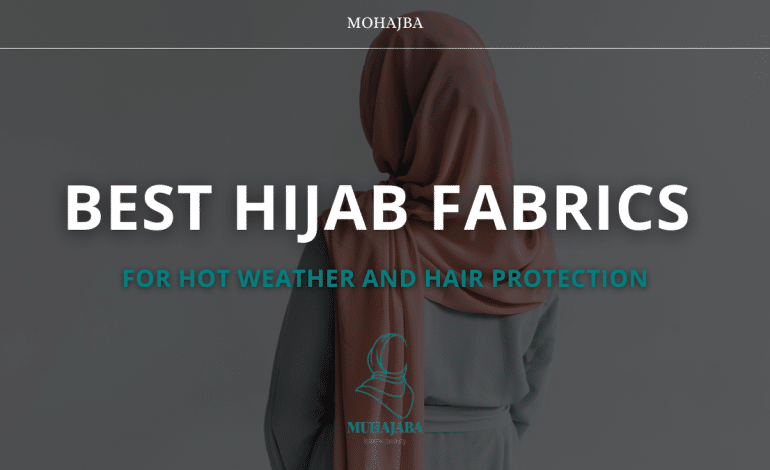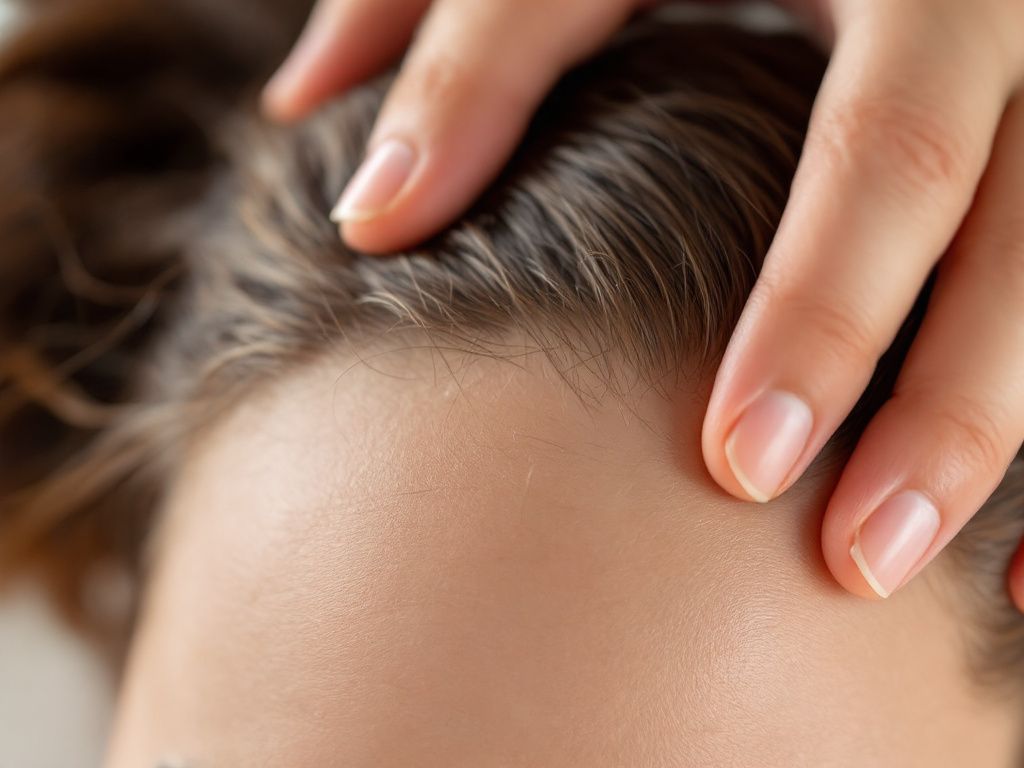[Heritage + Beauty] My Grandmother’s Muslim Beauty Secrets
![[Heritage + Beauty] My Grandmother’s Muslim Beauty Secrets](https://mohajba.com/wp-content/uploads/2025/04/natural_muslim_beauty_remedies_feature-770x470.jpg)
Introduction
From the bustling souks of Marrakech to the tranquil gardens of Isfahan, beauty rituals have been knit into the fabric of Muslim heritage for centuries. Growing up, my grandmother’s skin glowed with a timeless allure, untouched by modern cosmetic products. Her beauty secrets were both simple and profound, deeply rooted in Islamic traditions and natural remedies passed down through generations. In this personal journey, I unveil the time-tested wisdom of natural Muslim beauty remedies, sharing insights gleaned from my grandmother’s cherished traditions.
An Ancestral Legacy: Introduction to Natural Muslim Beauty Remedies
For centuries, Muslims have turned to nature not just for health and sustenance, but for their beauty regimes. **Islamic traditions**, well-documented in texts like the _Hadith_ and the chronicles of travelers, emphasize cleanliness and nature’s bounty as essential elements of personal grooming. This holistic approach has cultivated an array of treatments favoring health over mere aesthetic enhancement.
The Foundation: Wudu and the Importance of Purity
Central to Islamic daily life is the practice of _wudu_ (ablution), a sacred form of purity. 🕌 My grandmother explained wudu not only as a spiritual cleansing but as a foundational beauty practice. A research paper from the Journal of Dermatological Science highlights that regular gentle washing and hydration, akin to wudu, serve as an effective regimen for maintaining skin health and managing conditions like acne (source). In essence, practicing wudu ensures skin remains fresh and rejuvenated, balancing oils and preserving a natural glow.
Secret Beauty Ingredients from My Grandmother’s Cabinet

- Olive Oil: Known as _the sacred tree_ in the Quran, olive oil was my grandmother’s ultimate moisturizer. She taught me to regularly massage a small dab into my skin and hair, practices which modern studies corroborate as promoting collagen production and strengthening the hair shaft (Journal of Cosmetic Dermatology). Its high concentration of antioxidants and vitamins offers both protection against environmental damage and natural skin rejuvenation. 🫒
– **Application Tip**: For an enhanced impact, slightly warm the oil before use, as this increases absorption and effectiveness.
– **Case Study**: A 2017 study found that participants who incorporated olive oil into their routine saw a reduction in transepidermal water loss (TEWL), improving overall skin barrier function.
- Honey: Another treasured component, honey features prominently in the prophetic medicines of Islam. Its natural antibacterial properties make it an excellent ingredient for both moisturizing face masks and hair treatments (Asian Pacific Journal of Tropical Biomedicine). The moisture retention characteristics also effectively nourish and plump the skin.
– **Application Tip**: Blend a tablespoon of honey with a splash of rose water, apply as a face mask to refresh and soothe the skin.
- Rose Water: Always present, a bottle of homemade rose water was used to hydrate and tone the skin. This wonderfully fragrant product is known for its anti-inflammatory properties and its ability to close open pores. An article from the International Journal of Molecular Sciences cites its efficacy in maintaining skin hydration and elasticity.
– **DIY Recipe**: My grandmother would collect organic rose petals, simmer them gently, and strain the water as a preservation of its healing properties.
Practical Tips and Techniques

- Exfoliation with Coffee Grounds: Inspired by Arabia’s connection with the world coffee trade, using coffee grounds was not just about aroma but utility. My grandmother embraced coffee grounds as a natural exfoliant, reveling in their ability to revive tired skin and promote circulation. A study in the Annals of Medical & Health Sciences Research validated caffeine’s role in invigorating the skin by improving microcirculation.
– **How to Exfoliate Correctly**: Any exfoliation should be gentle, using small, circular motions to prevent micro-tears on the skin.
- Herbal Hair Treatments with Henna: A biblical herb for beauty, henna was frequently applied onto hair for conditioning. Scientifically, henna’s bioactive compounds (Lawsonia inermis) have been proven to strengthen hair strands and protect from oxidative stress (Journal of Ethnobiology and Ethnomedicine).
– **Grandmother’s Henna Mix**: Combine henna powder with a dash of lemon juice and chamomile tea for a rich conditioner and natural highlight enhancer.
Embracing Modern-Day Science through Ancient Wisdom
Modern science increasingly supports the value of these traditional treatments. Maria Julia Correa’s 2019 paper in the Journal of Evidence-Based Complementary & Alternative Medicine notes the compatibility of wholesome beauty solutions in maintaining dermatological health. Embracing direct-from-nature solutions minimizes exposure to synthetic chemicals, some of which can trigger allergic reactions or other adverse effects, a vital consideration for today’s informed consumer.
Industry Insights: Current Trends Reflecting Traditional Remedies
It’s no coincidence that the personal care industry is witnessing a renaissance of natural and vegan products, many echoing the shifts toward our ancestors’ deeply holistic beauty methods. Brands incorporating ingredients like garlic for its antimicrobial properties or dates renowned for high mineral content reflect the perpetual wisdom embedded in these age-old practices.

Ensuring Environmental Responsibility and Ethical Sourcing
Sharing stories about vegan ingredients and simplistic approaches can unlock a broader societal shift toward sustainable beauty products. By relying on herbal and naturally sourced components, industries reduce petrochemical reliance, thus fostering ecological stewardship. As skin and hair continue to adapt synergistically with organic solutions, the move toward ethically sourcing ingredients like shea butter or sesame oil becomes an active contribution to economic empowerment globally.
Real-world Scenarios: Women Empowerment through Traditional Beauty
Empowering women through knowledge sharing on harnessing beauty naturally strengthens community ties. The enhancement of business acumen for small-scale female entrepreneurs who transition these ancient beauty secrets into sellable products reflects this empowerment—a process already seen among communities in regions like South Asia and North Africa.
Moving Forward: Traditions Upon Modern Routes
Keeping ancestral beauty alive involves deliberate storytelling and mindful practice rather than commodification. We acknowledge our generations’ legacies and safely intertwine these methods with the best in scientific efficacy. As products are trialed and refined, paying homage to familial and cultural histories offers comfort and authenticity while delivering effective skincare solutions.
Conclusion: A Return to the Classics
In sharing this personal journey through my grandmother’s teachings on natural Muslim beauty remedies, I’ve found confidence and joy replicating her routines both physically and spiritually. Through honoring the past, I invite you to embrace these rich traditions while appreciating the strides modern beauty science offers. So, the next time you immerse yourself in a self-care moment, let it be as my grandmother would, welcoming nature’s gifts in, and radiantly shining them out to the world. 🌸
Frequently Asked Questions
What are the benefits of using a hair mask in my hair care routine?
Using a hair mask can provide several benefits, including hydration, smoothing, strengthening, curl definition, heat protection, and damage repair. Hair masks infuse the hair with moisture, help coat the hair shaft to seal split ends, reduce breakage, and protect the hair from heat styling and environmental damage[1][4].
What ingredients should I look for in a hair mask?
Effective hair masks often include ingredients such as coconut oil, argan oil, shea butter, honey, avocado oil, green tea, and coconut water. These ingredients provide nourishment, moisturize, and protect the hair, offering benefits like softening, moisturizing, and protecting against damage[2][5].
How often should I use a hair mask in my routine?
You should use a hair mask whenever your hair feels dry, unmanageable, or in need of intense hydration. This can vary depending on your hair type and needs, but generally, using a hair mask once or twice a week can help maintain healthy and moisturized hair[1][4].
How do I apply a hair mask for the best results?
To apply a hair mask effectively, shampoo your hair first, then apply the mask, focusing especially on the ends where hair tends to be the most damaged. Leave the mask on for anywhere from 10 minutes to overnight, depending on the type of mask and your hair’s needs[1][4].
References







